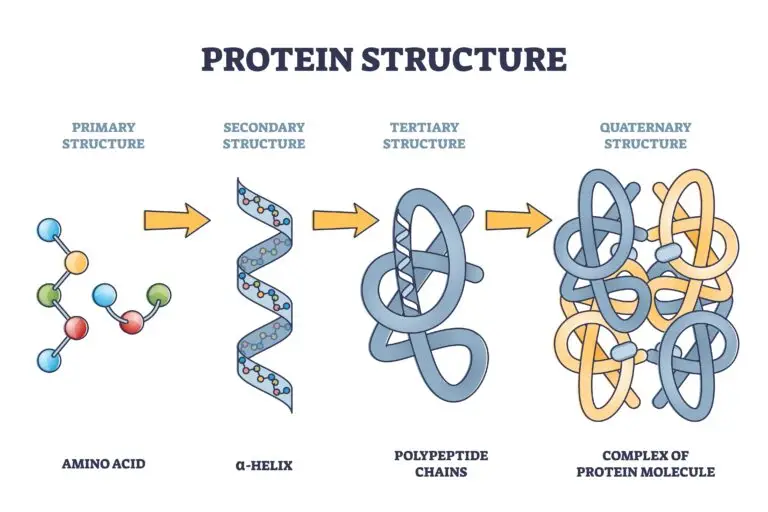Protein

Table of Contents
Protein Definition
A protein is a large, complex molecule composed of amino acids and organic compounds containing carbon, hydrogen, nitrogen, oxygen, and sometimes sulfur. Proteins are essential macromolecules that play a crucial role in living organisms’ structure, function, and regulation of cells and tissues.
Key Features of Proteins
Amino Acid Composition
- Proteins are polymers made up of long chains of amino acids linked together by peptide bonds.
- There are 20 different amino acids commonly found in proteins, and the specific sequence of these amino acids determines the structure and function of the protein.
Structure and Folding
Proteins have a unique three-dimensional structure that is critical to their function. The primary structure is the linear sequence of amino acids, while the secondary and tertiary structures involve folding and interactions between amino acid residues.
Functions of Proteins
Proteins serve diverse functions in living organisms, including:
- Enzymes: Catalyze biochemical reactions.
- Structural Proteins: Provide support and shape to cells and tissues.
- Transport Proteins: Facilitate the movement of substances across cell membranes.
- Hormones: Regulate physiological processes.
- Antibodies: Play a key role in the immune system.
- Receptors: Transmit signals within cells in response to external stimuli.
Protein Synthesis
- The process of protein synthesis involves transcription (DNA to RNA) and translation (RNA to protein).
- The genetic code in DNA is transcribed into messenger RNA (mRNA), which then guides the assembly of amino acids into a specific protein.
Denaturation and Renaturation
Proteins can undergo denaturation, where their structure is altered due to factors such as heat or pH changes. Some proteins can renature and regain their functional structure under favorable conditions.
Proteomics
Proteomics is the study of the entire complement of proteins in a cell, tissue, or organism. It involves identifying and characterizing proteins to understand their functions and interactions.
Related Links
Antigen
Catalyst (Biology)
Denaturation
Mutation